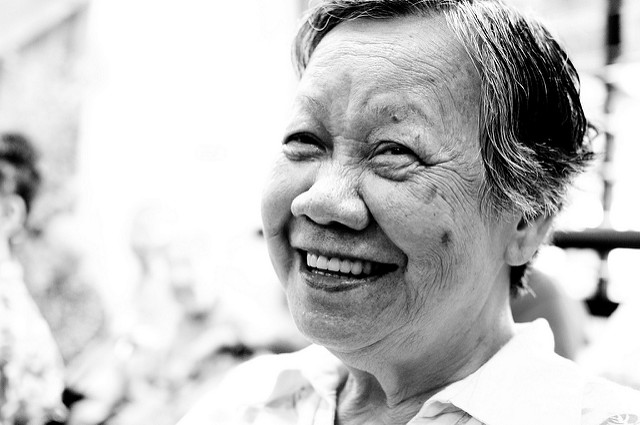Alzheimer’s Disease and Dementia
A dementia diagnosis can be devastating for anyone, but cultural, linguistic, and social barriers — as well as increased rates of dementia in diverse communities — create unique challenges for diverse elders living with dementia.
Alzheimer’s disease and other dementias are a looming crisis for the aging population of the United States. Today, more than five million Americans have dementia, and that number is expected to grow as the population ages. Alzheimer’s disease contributes to the deaths of approximately 500,000 Americans each year, making it the sixth leading cause of death in the United States.

Photo by Fechi Fajardo (Flickr)
A dementia diagnosis has major repercussions on many facets of an older adult’s life, including their healthcare and caregiving needs, their economic security, and their mental and physical health. But when diverse older adults and their families are not informed about Alzheimer’s and dementia, they may not seek help until the disease has advanced to a late stage. A lack of in-language and culturally sensitive materials about dementia has left racially and ethnically diverse people uninformed about the symptoms of dementia that they or their loved ones may be experiencing. Many American Indian tribes don’t even have a word for “dementia,” leaving American Indian and Alaska Native family members and caregivers isolated. And because of acute social isolation and thin support networks, dementia diagnoses for LGBT older adults can be especially difficult to navigate.
Research is beginning to uncover the impact of Alzheimer’s disease and other dementias on diverse elders. Latinos are about 1.5 times more likely to develop Alzheimer’s disease than whites, and African Americans are about two times more likely. (For more information, see the Alzheimer’s Association’s Special Report on Race, Ethnicity and Alzheimer’s Disease). Additionally, researchers have recently estimated that American Indians and Alaska Natives have a 35% lifetime risk of developing dementia. Much more research is needed on the impact of dementia on these communities as well as Asian Americans and Pacific Islander Americans, American Indians and Alaska Natives, and LGBT people.
The Diverse Elders Coalition is working to end dispartities in dementia research, diagnosis, and treament. Our member organizations are engaged in cultural competency training for healthcare providers, outreach into our communities about the importance of clinical trials and the signs and symptoms of dementia, and policy advocacy to increase support for older adults living with dementia and their family members.
For more information, check out our blog, where we’ll share program updates, reports, and upcoming events about our work on dementia in diverse communities.
